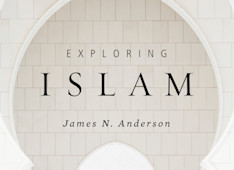How did the Reformers view Islam?
The Reformers, especially the first and second generation of Reformers, had less immediate contact with Islam than some of the ancient churches that actually ended up bordering Islam. We know, for example, that Thomas Aquinas wrote his Summa contra Gentiles in large part as an apologetic against Islam. Even so, the Reformers were aware of Islam and aware of the challenge of Islam.
Islam was a very real challenge. In the sixteenth and seventeenth centuries, Islam marched into eastern Europe and conquered significant areas. It would actually come to threaten the very gates of Vienna. So, Islam was not far away.
The basic teaching of the Reformers was the teaching of the medieval church as well: Muhammad was a false prophet. Some of them held that Scripture had prophesied about him in Revelation 13, where the false prophet arises. So, they saw Islam as a dangerous, competing religion.
Some of the Reformed thought that the tendency of the Christian church to use images had given Muhammad a leg up in criticizing Christian idolatry. So, the Reformed thought they were in a better position to refute Muhammad than Rome. Those were the basic elements of the Reformers’ early understanding of Islam.
This transcript is from a live Ask Ligonier event with W. Robert Godfrey and has been lightly edited for readability. To ask Ligonier a biblical or theological question, email ask@ligonier.org or message us on Facebook or Twitter.
More from this teacher
W. Robert Godfrey
Dr. W. Robert Godfrey is a Ligonier Ministries teaching fellow and chairman of Ligonier Ministries. He is president emeritus and professor emeritus of church history at Westminster Seminary California. He is the featured teacher for many Ligonier teaching series, including the six-part series A Survey of Church History. He is author of many books, including God’s Pattern for Creation, Reformation Sketches, and An Unexpected Journey.
Has God planned our entire lives? Are we exactly where He wants us to be?

Is there a difference between “once saved, always saved” and the perseverance of the saints?

What is the difference between the Dutch Reformed view and the Lutheran view of baptism?






